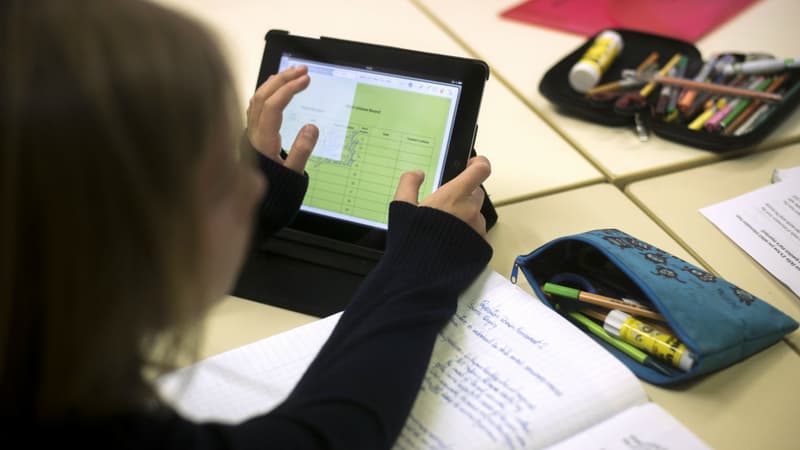“Digital technology is useful when it is at the service of transmission and pedagogy.” This September 5, on BFMTV, the Minister of National Education, Gabriel Attal, returned to the use of digital technology in school, especially in college and high school. For several years now, French departments have been experimenting with increasing use of digital tablets. The latter have an advantage in terms of weight: by replacing textbooks, they make it possible to make a much lighter folder.
But in France and abroad, this move to the tablet is increasingly discussed. The latest example to date is Sweden, which after several years of massive digitization wants to leave tablets in the cupboard so that school textbooks can reappear in paper format.
Better learning on paper
At issue: the growing reading difficulties in the country, which could be related to the use of tablets instead of paper. In 2018, two meta-analyses looked at existing studies on the effectiveness of paper-based and on-screen learning. With a significant advantage for the role. At the same time, several institutions have pointed out the significant limits of digital learning.
“Countries that have made significant investments in information and communication technologies in education have not seen any significant improvement in the performance of their students in reading, mathematics and science,” the OECD noted in 2015.
A finding shared by a UNESCO document that, in its World Education Monitoring Report 2023, considers that “teachers perceive the use of tablets and phones as an obstacle to classroom management.”
The maintenance problem
But pedagogical weaknesses are far from the only limits to the development of the tablet in schools. The first limitation refers to the cost of the equipment, which is necessarily high.
Like Sophie Vénétitay, Laurent Kaufmann points to another big challenge posed by the use of digital tablets: maintenance. Both evoke the difficulties that teachers have when dealing with sometimes faulty equipment, when it is not the Internet connection itself that is having difficulties, which must be repaired or updated at any time.
“The health crisis has highlighted the importance of digital ‘everyday inequalities’: quality of connections and their limitations (such as blocked packets), absence or poor quality of equipment, shared use of equipment within the family, little domain of communication tools with teachers” pointed out a report from the Ministry of National Education, from the beginning of 2023.
At Tech&Co, Gabriel Attal points out that in the future he will not close any doors to the use of technology to lighten the weight of backpacks in college and high school. But both in France and abroad, the tablet is still far from being the solution to preserve the back of adolescents.
Source: BFM TV


